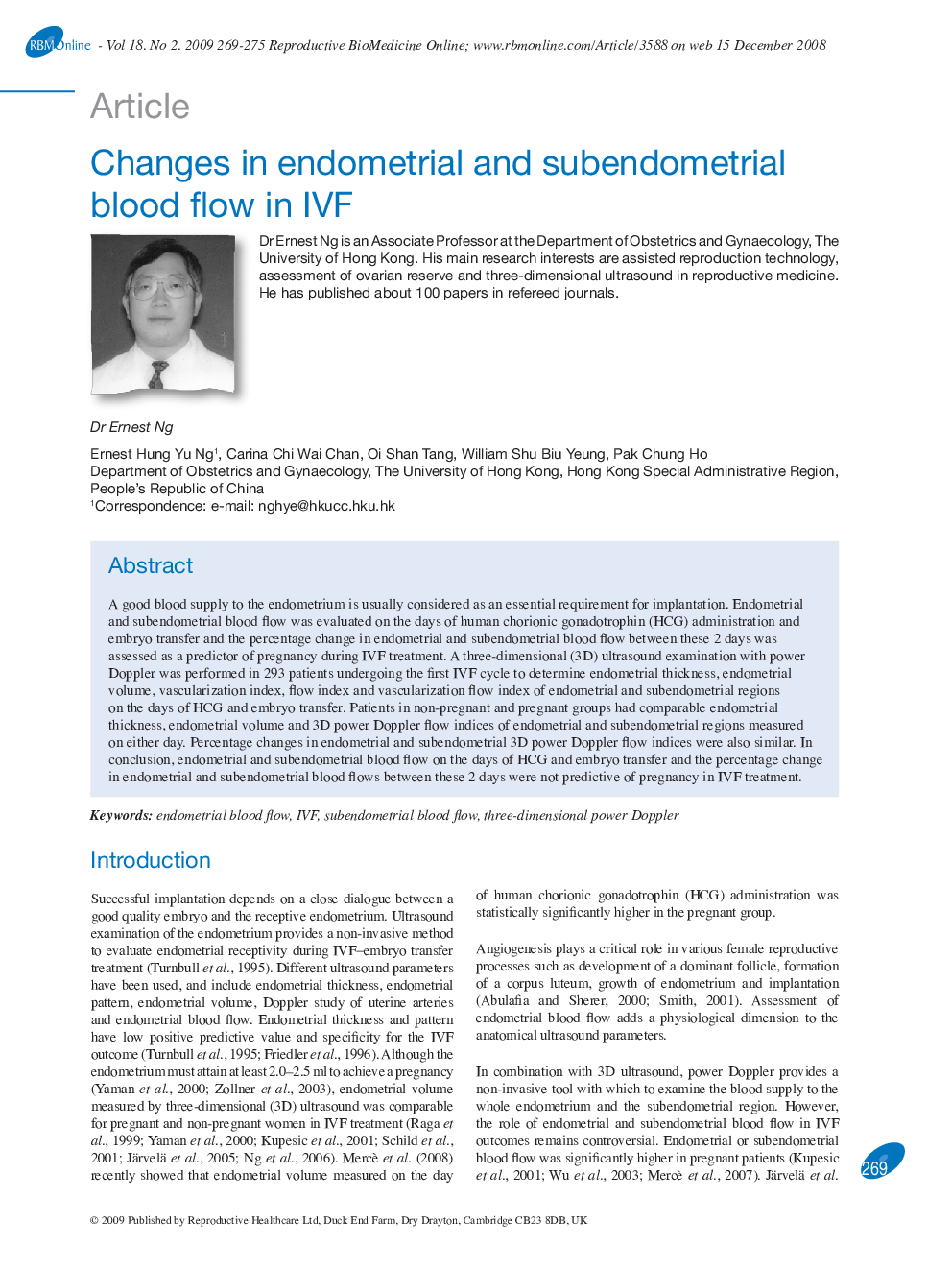| Article ID | Journal | Published Year | Pages | File Type |
|---|---|---|---|---|
| 3972208 | Reproductive BioMedicine Online | 2009 | 7 Pages |
A good blood supply to the endometrium is usually considered as an essential requirement for implantation. Endometrial and subendometrial blood flow was evaluated on the days of human chorionic gonadotrophin (HCG) administration and embryo transfer and the percentage change in endometrial and subendometrial blood flow between these 2 days was assessed as a predictor of pregnancy during IVF treatment. A three-dimensional (3D) ultrasound examination with power Doppler was performed in 293 patients undergoing the first IVF cycle to determine endometrial thickness, endometrial volume, vascularization index, flow index and vascularization flow index of endometrial and subendometrial regions on the days of HCG and embryo transfer. Patients in non-pregnant and pregnant groups had comparable endometrial thickness, endometrial volume and 3D power Doppler flow indices of endometrial and subendometrial regions measured on either day. Percentage changes in endometrial and subendometrial 3D power Doppler flow indices were also similar. In conclusion, endometrial and subendometrial blood flow on the days of HCG and embryo transfer and the percentage change in endometrial and subendometrial blood flows between these 2 days were not predictive of pregnancy in IVF treatment.
